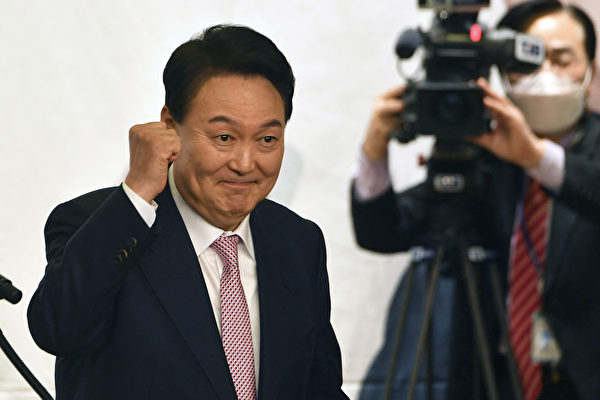Widgetized Section
Go to Admin » Appearance » Widgets » and move Gabfire Widget: Social into that MastheadOverlay zone
South Korea’s new president Yoon Seok-yeol:Seoul’s complicated relationship with Beijing needs to be rethought
Mr Yoon says Seoul’s complex relationship with Beijing needs to be rethought. Writing in Foreign Affairs magazine in February, he argued that his predecessor had maintained a strategic ambiguity and failed to take principled positions at a time of rising tension between the US and China. He said Seoul’s unwillingness to take firm positions on issues that have roiled relations between Washington and Beijing has created the impression that “South Korea has been tilting toward China and away from its longtime ally, the United States.”
He said South Korea, which has endured a long and dark period of dictatorship in the past, has been conspicuously silent in the face of violations of liberal democratic norms and human rights, drawing the ire of other democracies.
Yoon also said this is a time of change and upheaval in international politics. It requires clarity and boldness and a commitment to principle. He said South Korea should no longer be limited to the Korean Peninsula, but should rise to the challenge of becoming what I have described as a “global pivot,” a nation that promotes freedom, peace and prosperity through liberal democratic values and substantive cooperation.
Yonhap said yoon’s campaign platform focuses on strengthening the South Korea-U.S. alliance. In terms of his aides in charge of foreign affairs and national security, most of them are U.S. experts, including Lawmaker Cho Tae-yong and former Vice Foreign Minister Kim Sung-han, while China experts are relatively weak.
In terms of foreign affairs and security, Minister Yoon proposed “rebuilding the ROK-US alliance and strengthening the comprehensive strategic alliance”, including participation in the Us-Japan-Indo-Us Quad mechanism and deployment of the THAAD anti-missile system.
Yoon’s article in Foreign Affairs magazine says the growing competition between the U.S. and China poses a strategic dilemma for South Korea and many other countries in East Asia. They can’t ignore their long-term partnership with the United States. But their growing economic ties to China make them reluctant to join multilateral initiatives that Beijing opposes. Having experienced Beijing’s wrath in the past, America’s three partners in the Quadrilateral security dialogue — Australia, India and Japan — are wary of working together in a way that explicitly confronts China.
In 2010, he said, When Japan seized a Chinese fishing boat near China’s Diaoyu islands, known as the Senkaku in Japan, China retaliated by suspending exports to Japan of rare earths, important materials for semiconductors. Beijing has suspended imports of coal, Australia’s main export, after The country called for a broad investigation into the exact source of COVID-19.
Like these countries, South Korea faces economic retaliation from China. Unlike them, however, South Korea succumbed to China’s economic retaliation at the expense of its own security interests. After Seoul’s decision in 2016 to deploy the US-made Terminal High Altitude Area Defense (THAAD) system to defend against North Korean missiles, China applied economic pressure from all angles. This includes encouraging boycotts of South Korean products and imposing restrictions on imports and travel to South Korea.


